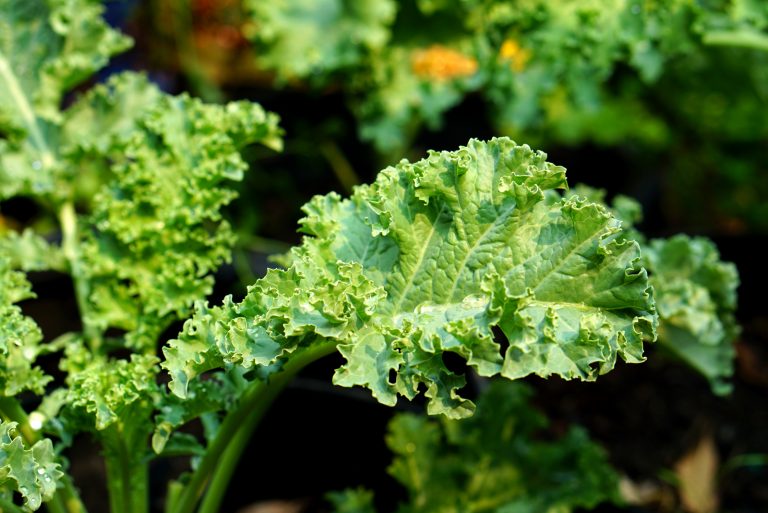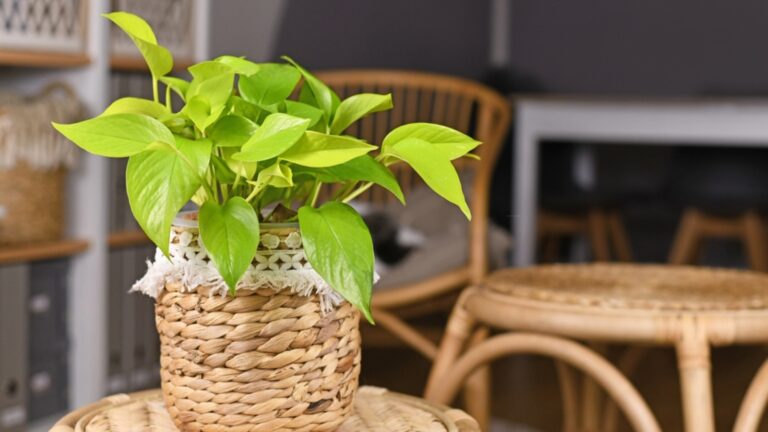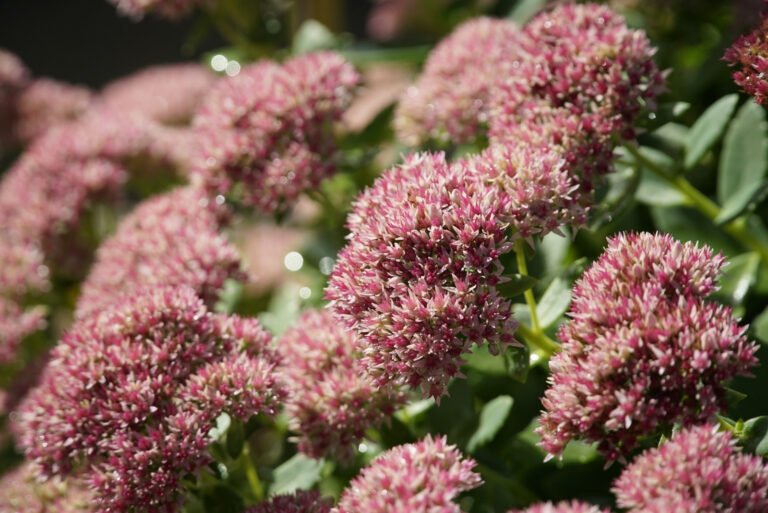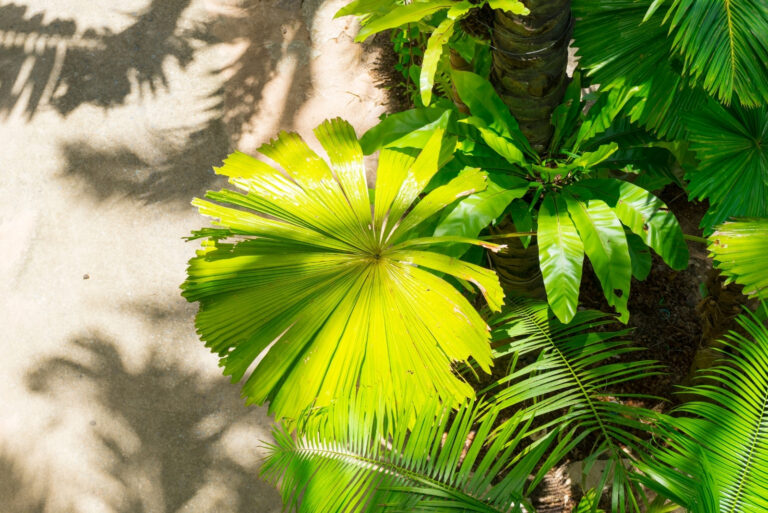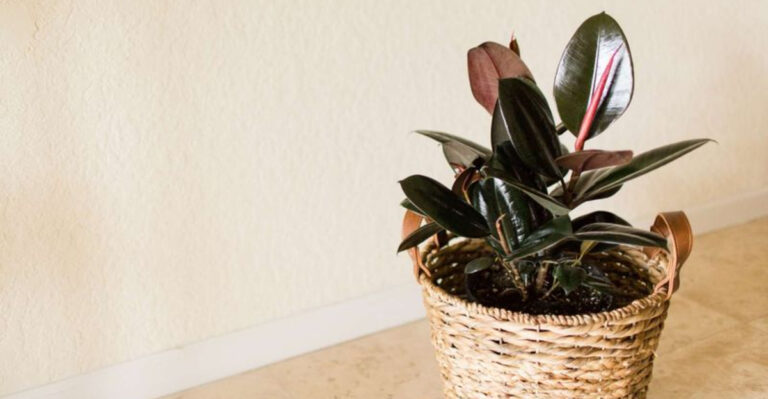18 Plants That Can’t Survive If Exposed To Too Much Sun
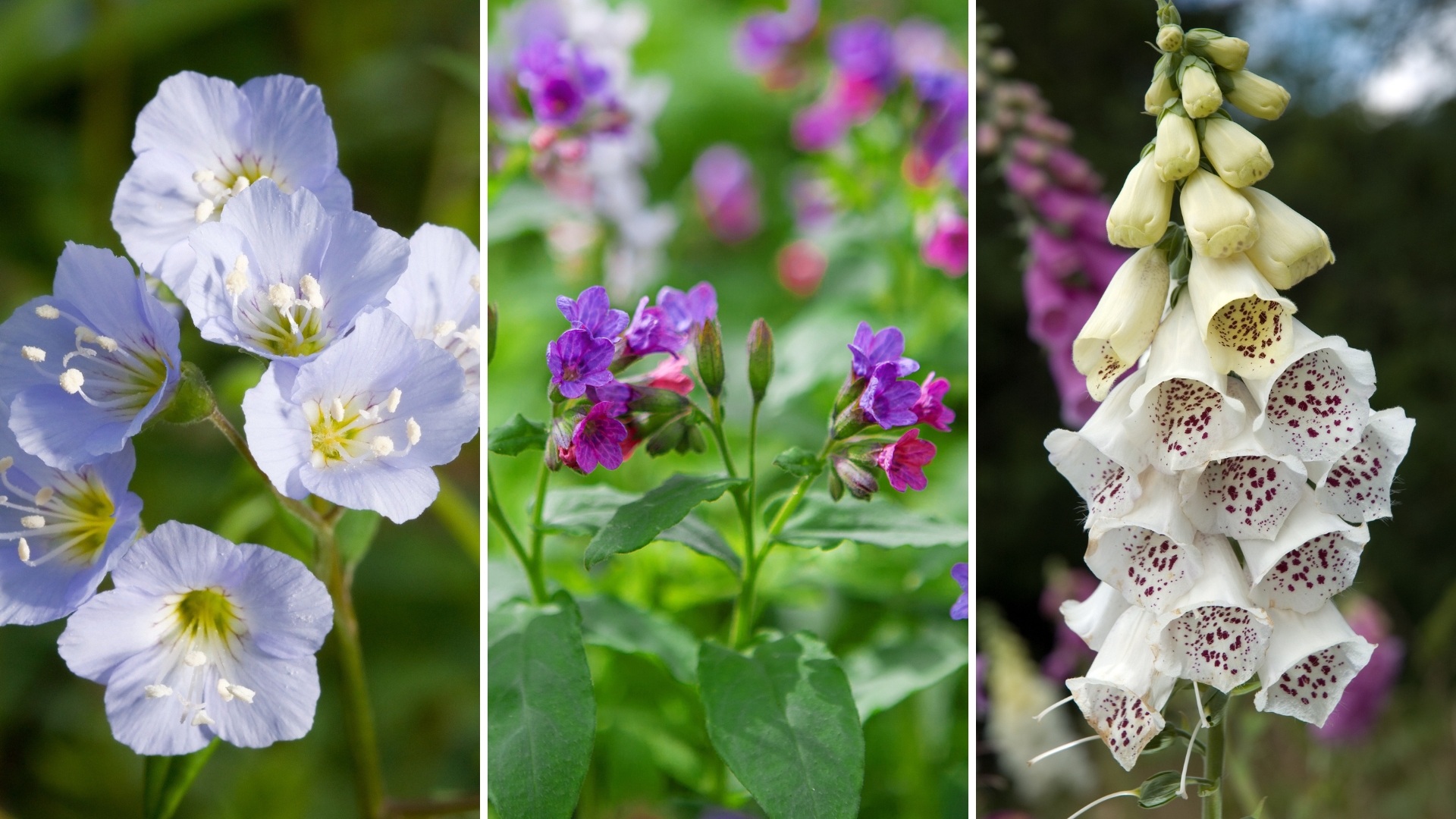
It’s no secret that some plants enjoy a bit of shade to take the edge off the heat. But here’s something you might not know: certain plants can’t stand full sun in the slightest.
These 18 plants prefer a quieter life in the shadows, where they can flourish without wilting under harsh conditions. Treat them to a little extra care, and they’ll repay you in spades!
1. Hostas Are The Shade Garden Staple
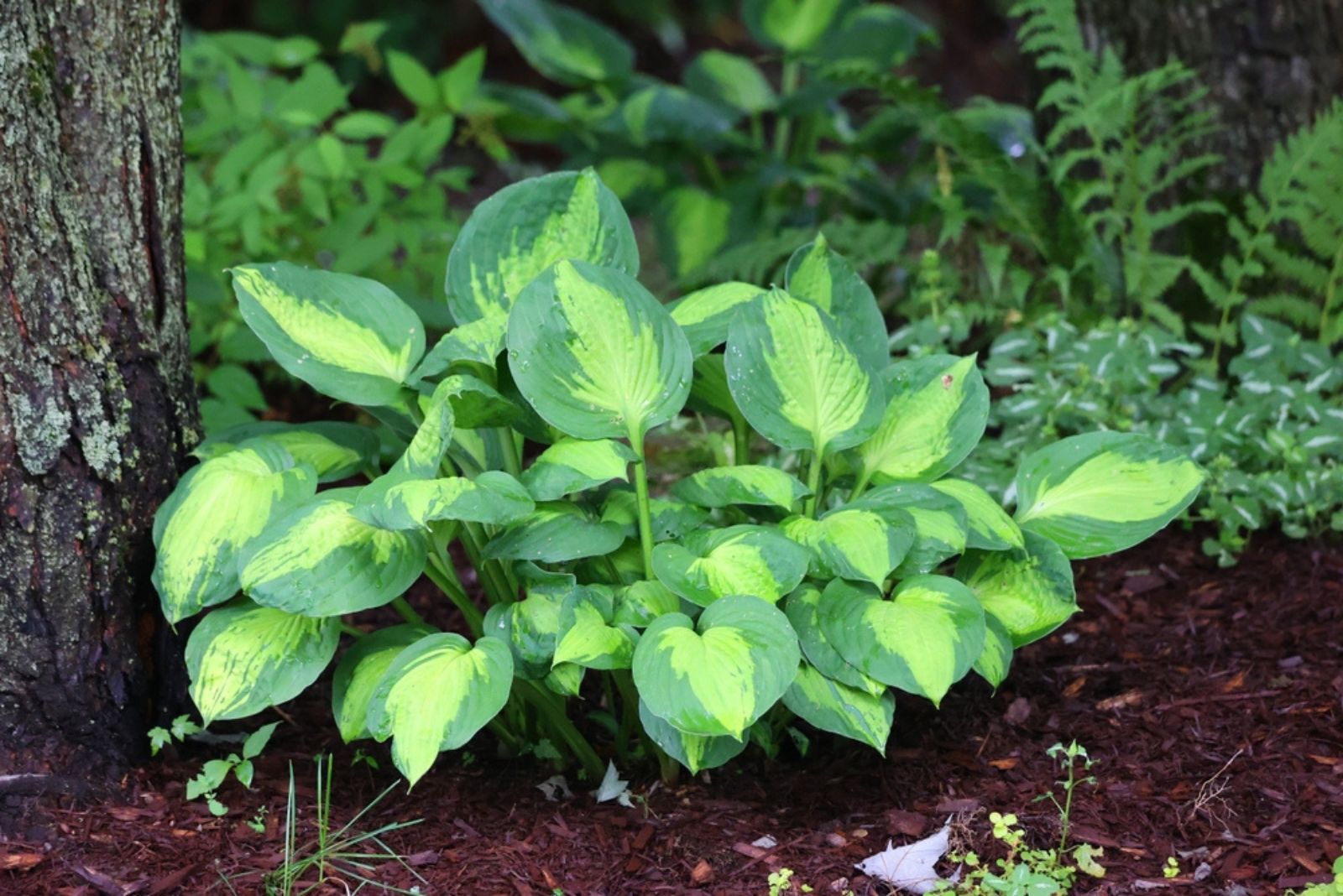
The crown jewels of shade gardens, hostas steal the spotlight with their lush, broad leaves and eye-catching textures. These hardy perennials bring versatility and charm to any shaded corner, offering a stunning palette of sizes and colors.
Expose hostas to full sun, though, and you’ll see their leaves scorch and lose their vibrant color. Instead of thriving, they’ll struggle and look worse for wear, leaving your garden a shadow of its former self.
2. Astilbe Is The Feathered Bloomer That Thrives In Cool Shade
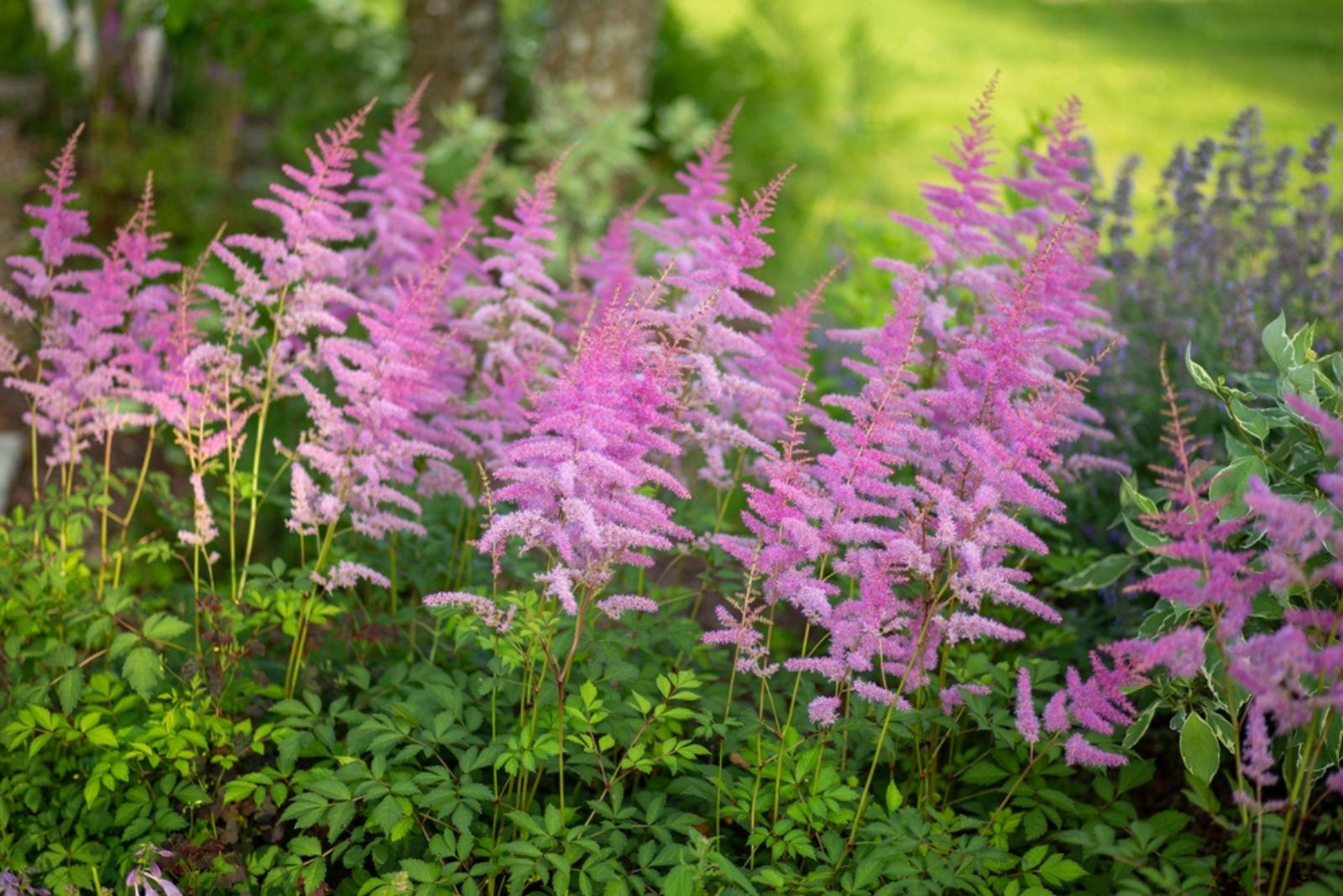
Everyone likes astilbes! With flowers that look like soft, colorful feathers, these flowers bring an air of elegance to any shaded garden.
But beware – too much sun robs them of their beauty, leaving their delicate blooms faded and their leaves crisp around the edges. Without the cool embrace of shade, astilbes can’t keep their signature grace!
3. Bleeding Heart Wilts In The Heat
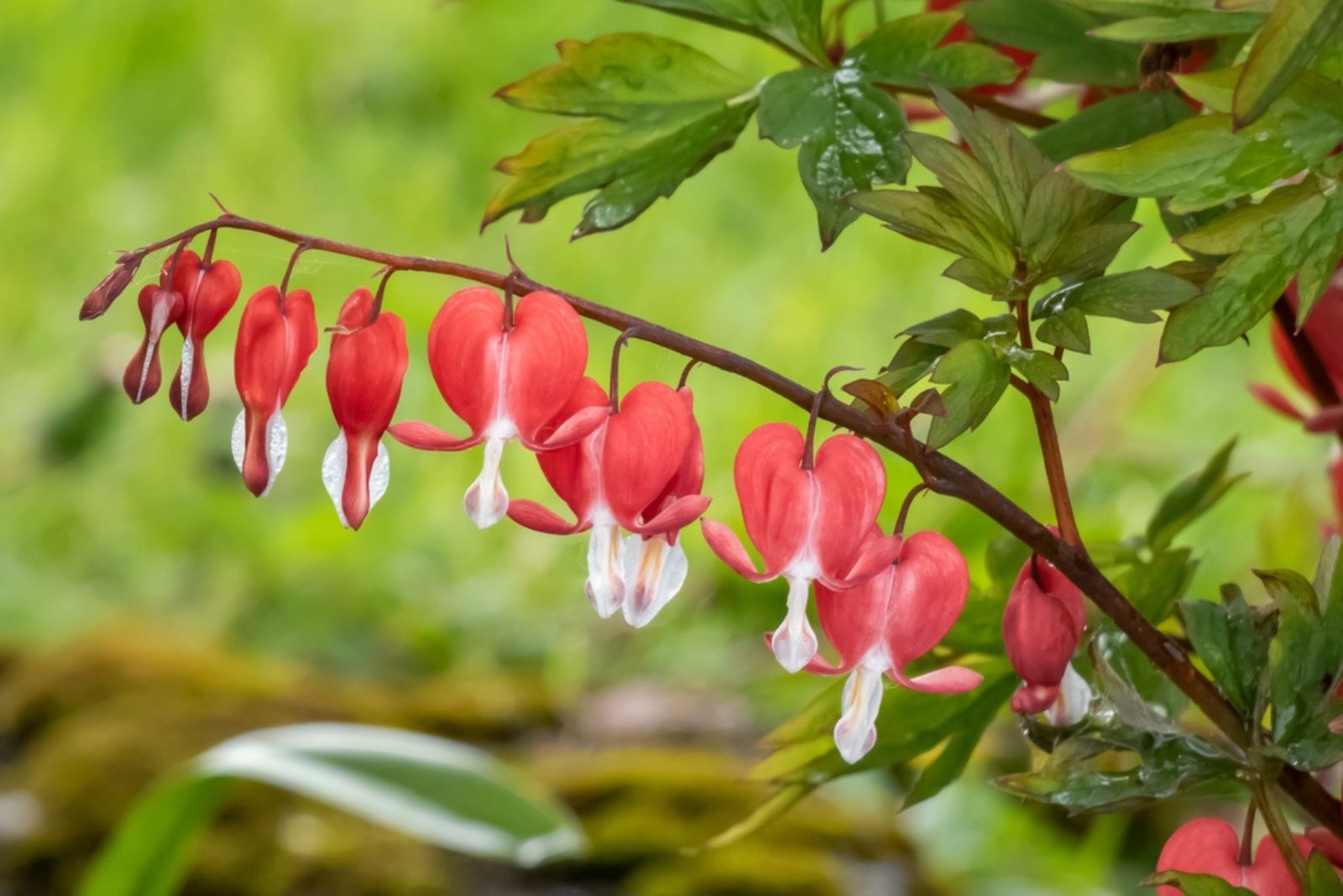
If your shaded garden needs a romantic touch, bleeding heart will do the job! This perennial thrives in cooler climates and adds charm to spring landscapes.
Put it in direct sunlight, and you’ll see its foliage quickly droop and wither. The heat will stress this delicate plant and cut its flowering season short.
4. Ferns Are The Woodland Favorites That Need Gentle Shadows
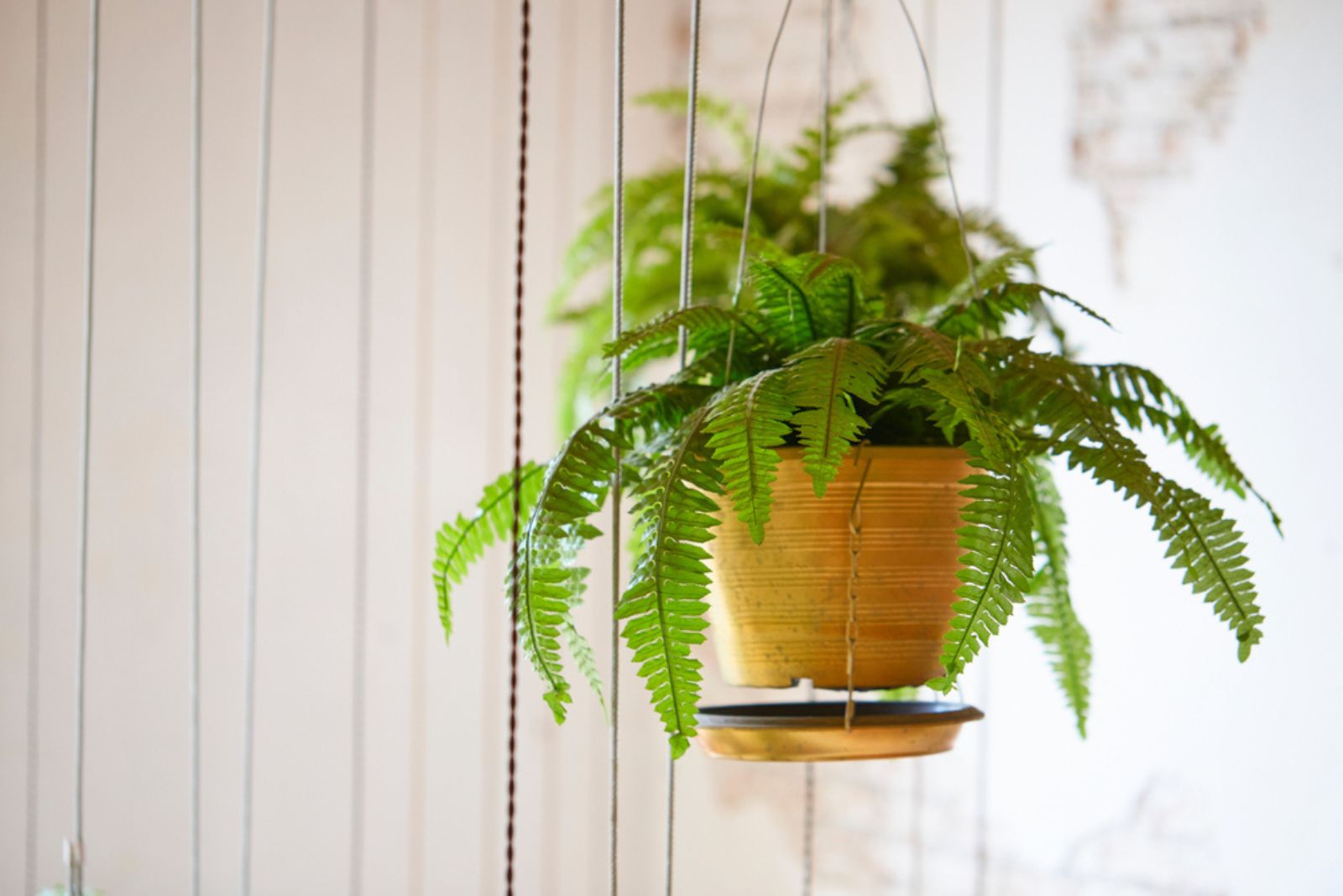
Woodland shade gardens can’t look great if ferns aren’t a part of them! These plants thrive in damp, shaded areas, spreading graceful greenery.
But too much sun will dry out their fronds, turning them crispy and brown. These shade-loving plants simply can’t handle the harshness of direct light.
5. Japanese Maple And Full Sun Don’t Get Along Well
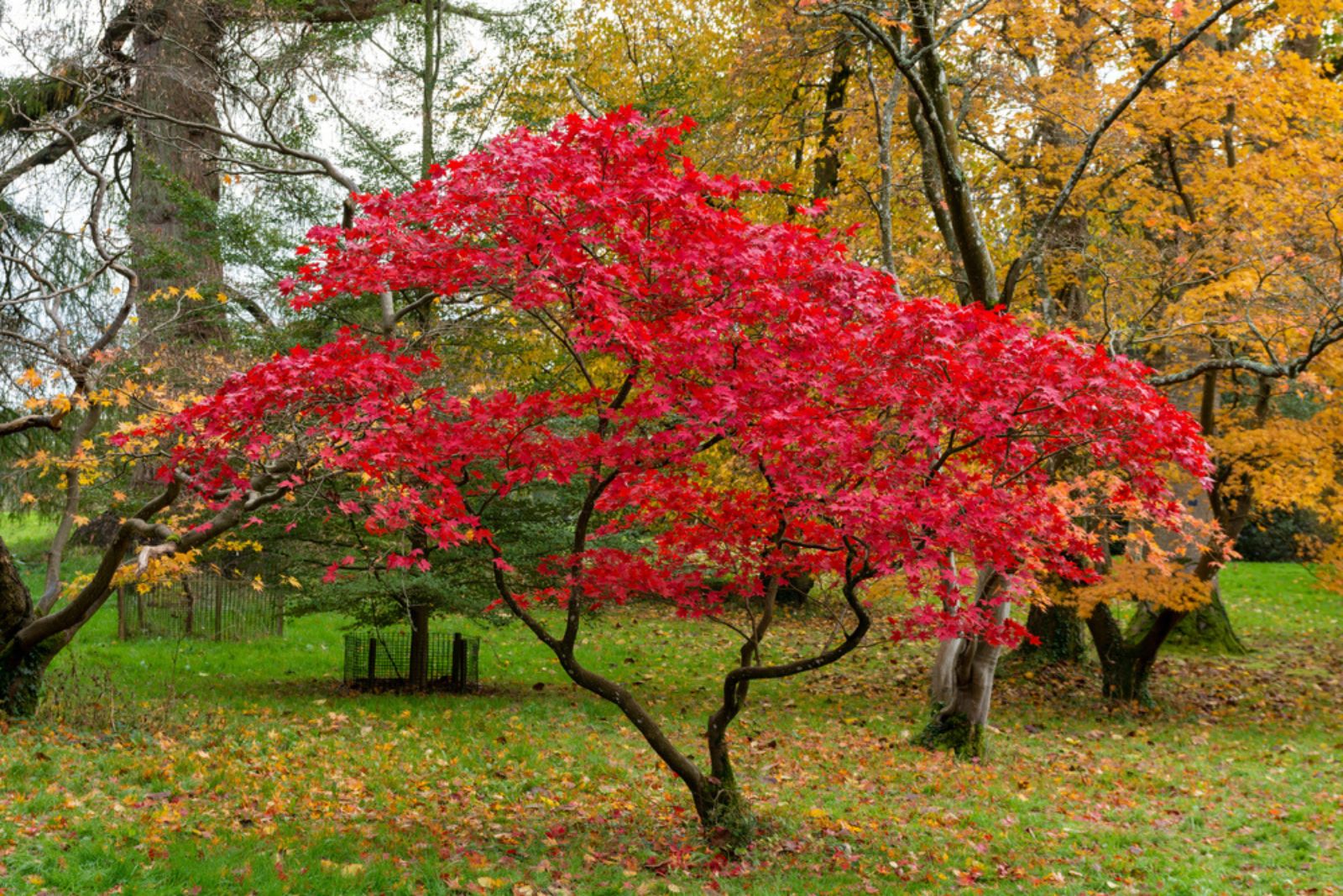
Japanese maples are prized for their intricate, colorful leaves and elegant branching. They create a stunning focal point in partially shaded gardens.
In full sun, however, their delicate leaves scorch and lose their vibrant hues. The heat can affect the Japanese maple significantly and you’ll end up with poor-looking and struggling plants that’ll wither away over time.
6. Direct Sunlight Will Destroy Coral Bells
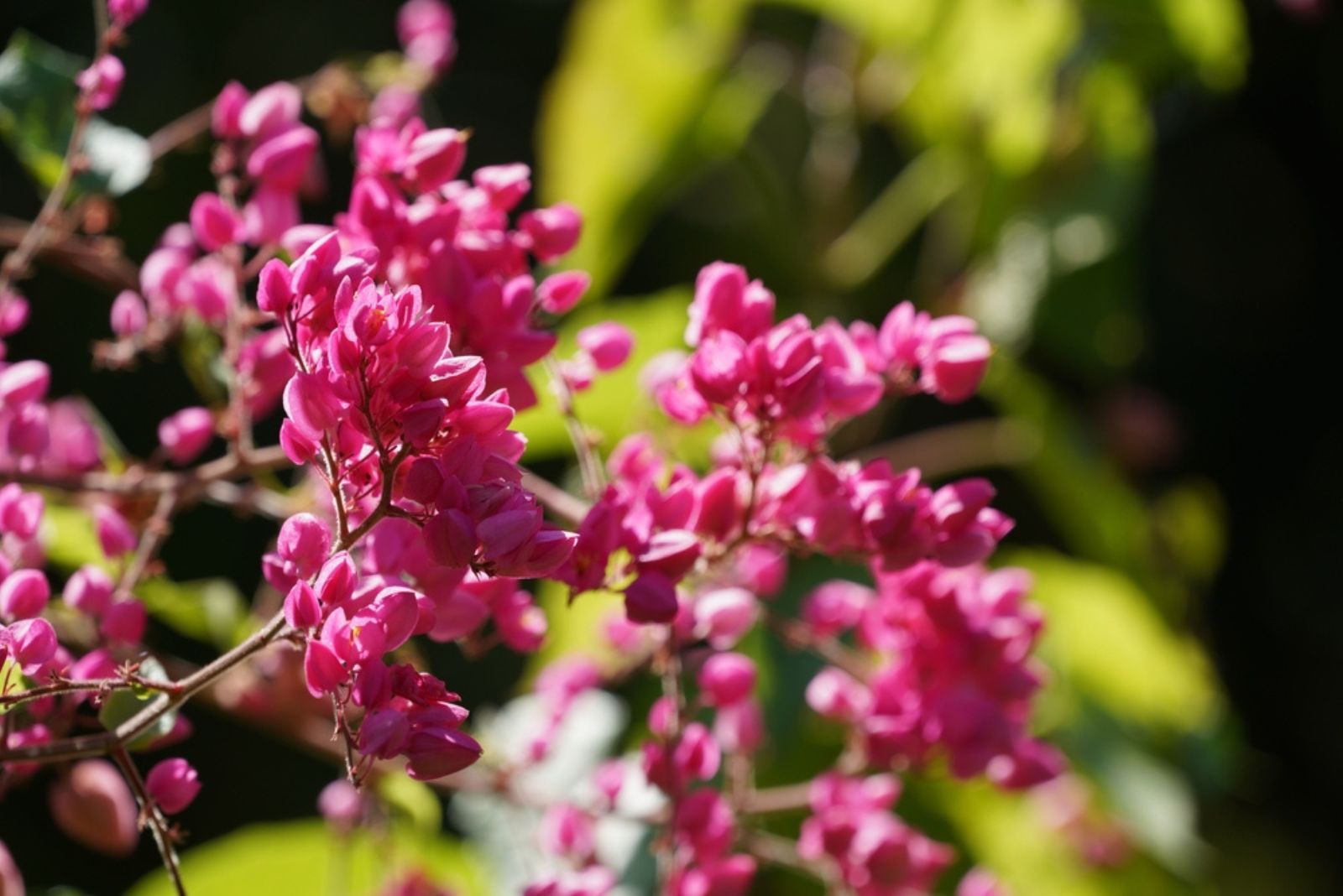
If your garden needs a pop of color, add coral bells! But DO NOT plant these beauties in full sun.
The leaves will quickly burn, and the plant will lose its colors with no hope of them returning.
7. Lungwort Also Flourishes In The Shade
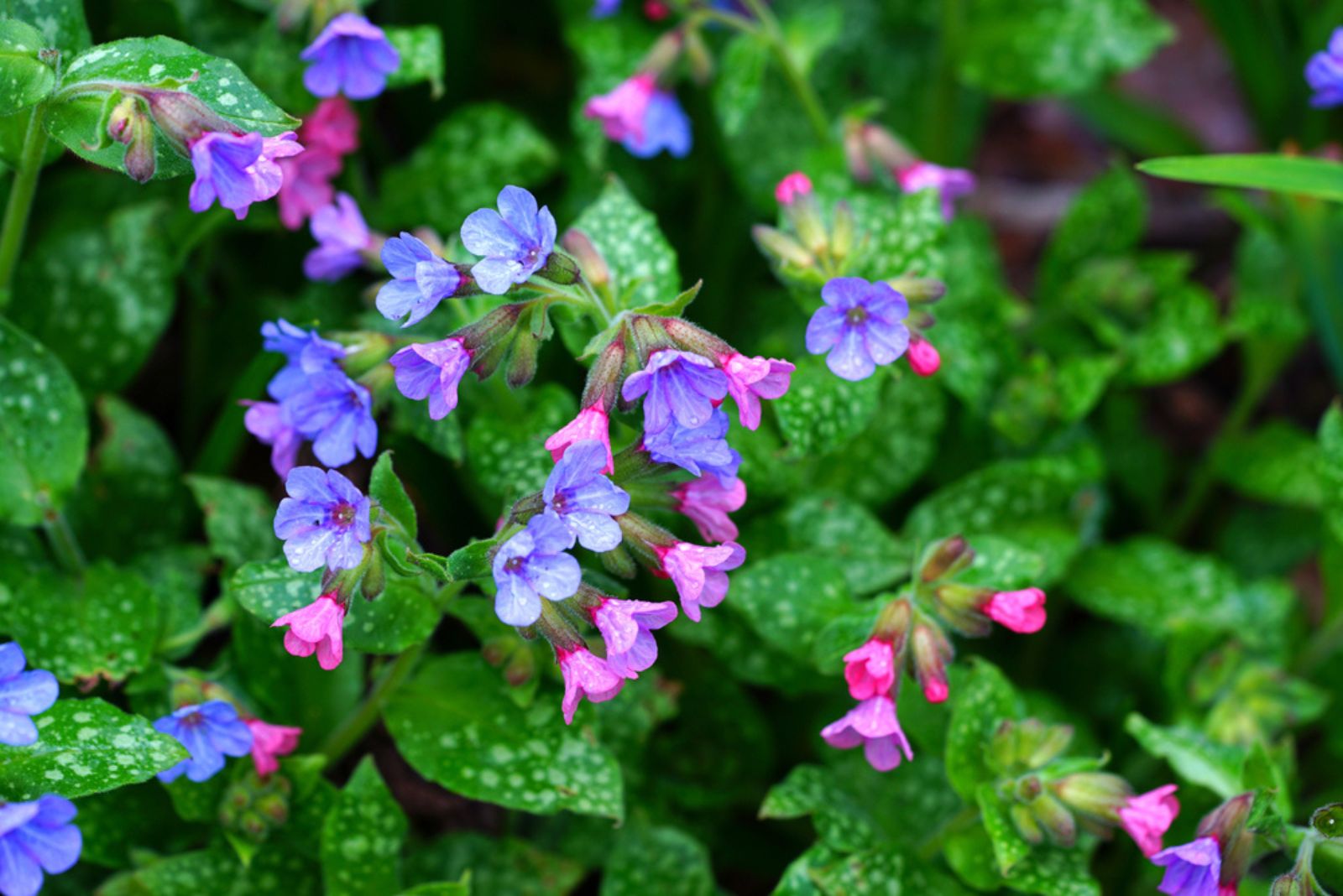
Lungwort is a charming plant with speckled leaves and clusters of pink, blue, or purple flowers. It’s a standout in low-light areas where it thrives with minimal fuss.
Too much sun will destroy its leaves, causing their unique patterns to fade. Instead of thriving, lungwort will struggle to survive in overly bright conditions.
8. Toad Lily Craves Cool Cover
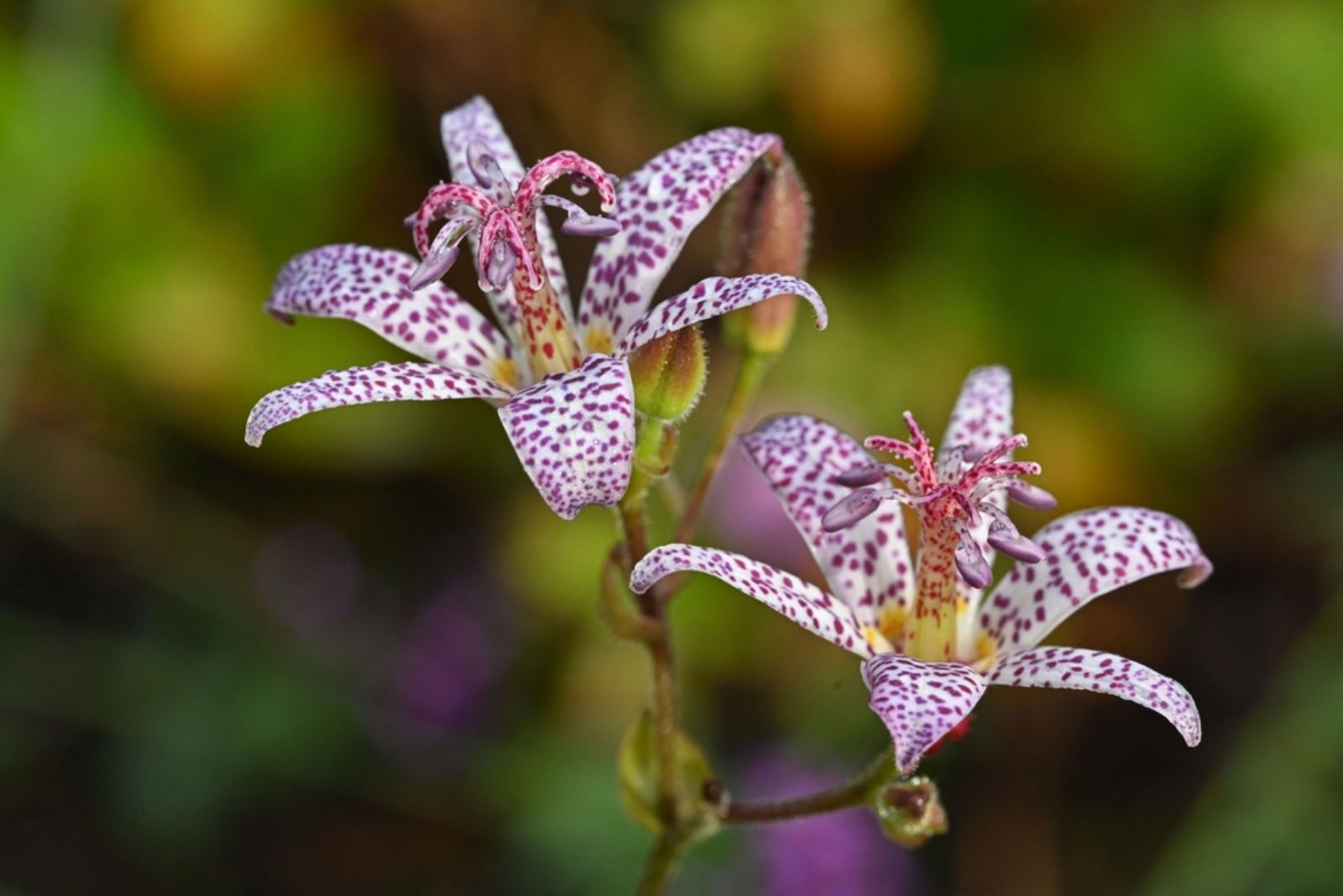
Late-season gardens often look dull, but toad lilies can change that. The catch is, that these plants can’t thrive in too much sunlight.
Without cool, shaded conditions, these stunning blooms won’t last long.
9. Foamflower Thrives In The Shade But Struggles Under Harsh Rays
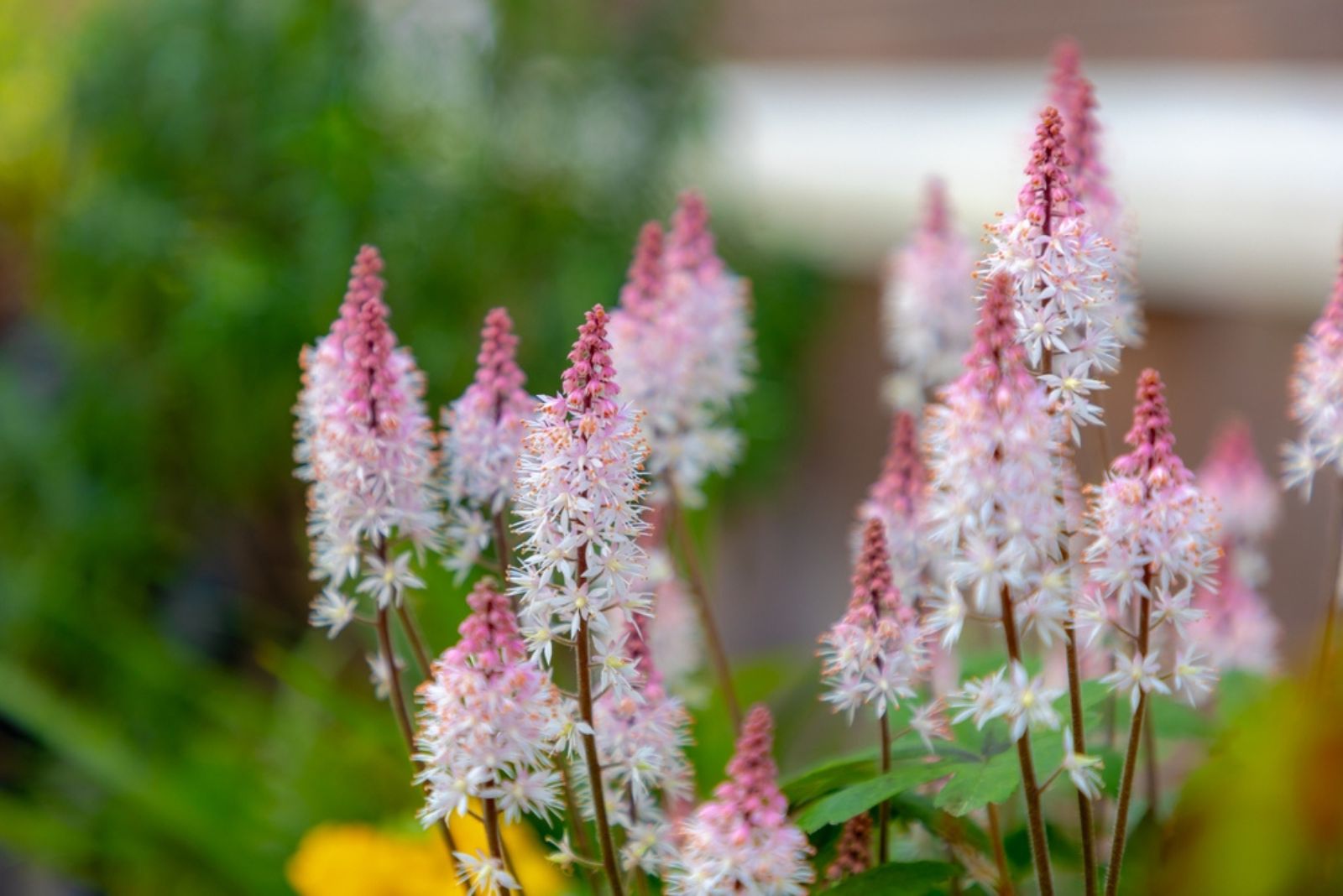
Got a sunny spot in your garden and thinking of adding foamflowers? Think again!
These plants thrive in shade and moisture, and harsh sun rays are a big no-no.
10. Lady’s Mantle Won’t Make It In Full Sun
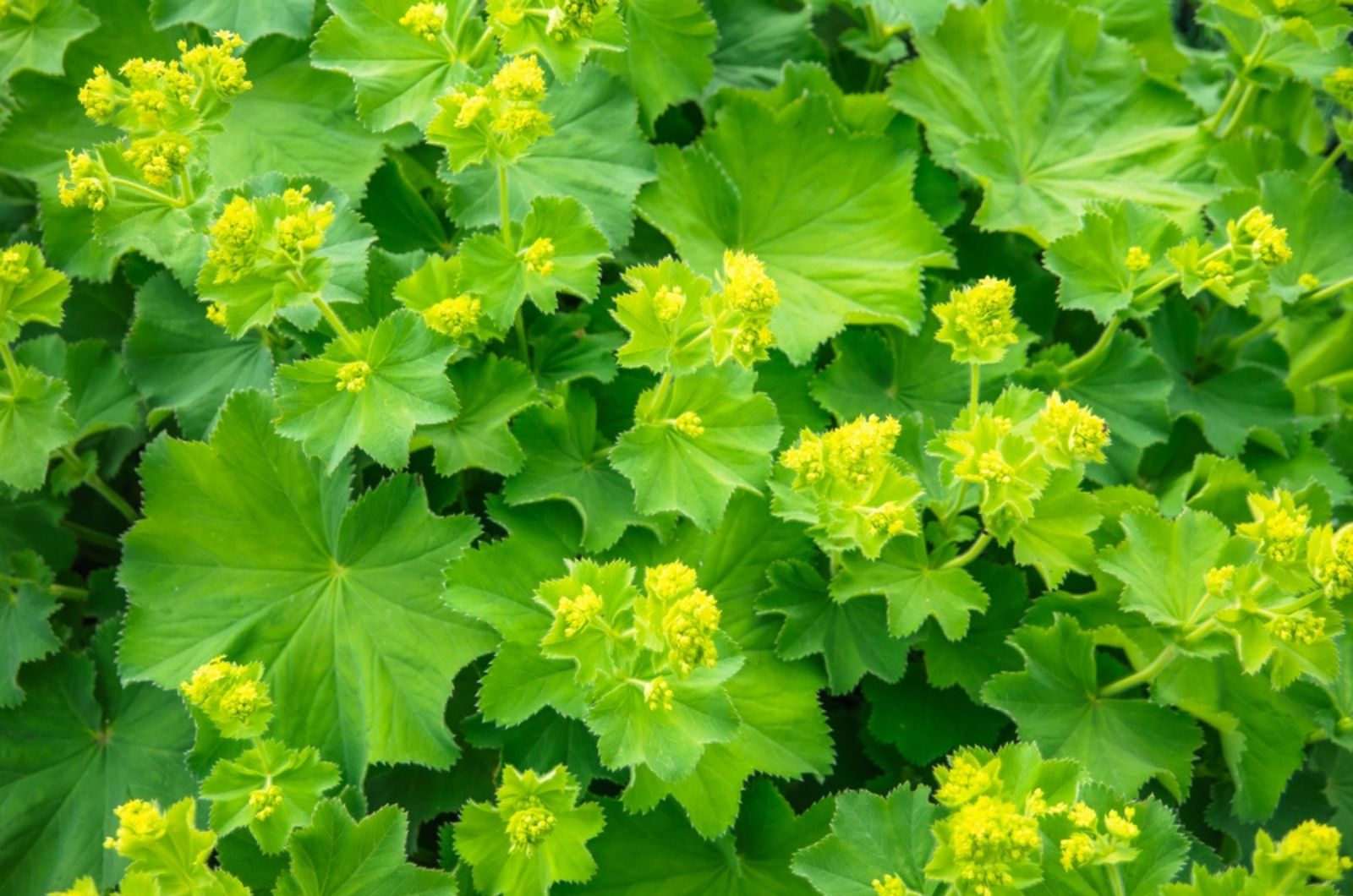
Lady’s Mantle is a garden favorite, known for its scalloped leaves that hold morning dew like tiny crystals.
But this plant has no love for intense exposure. In full sun, its leaves crisp up, and its gentle charm is replaced with a tired, brittle look. Tuck your Lady’s Mantle into a spot with filtered light and enjoy watching it flourish.
11. Forget About Primrose Early Blooms If You Plant Them In Direct Sun
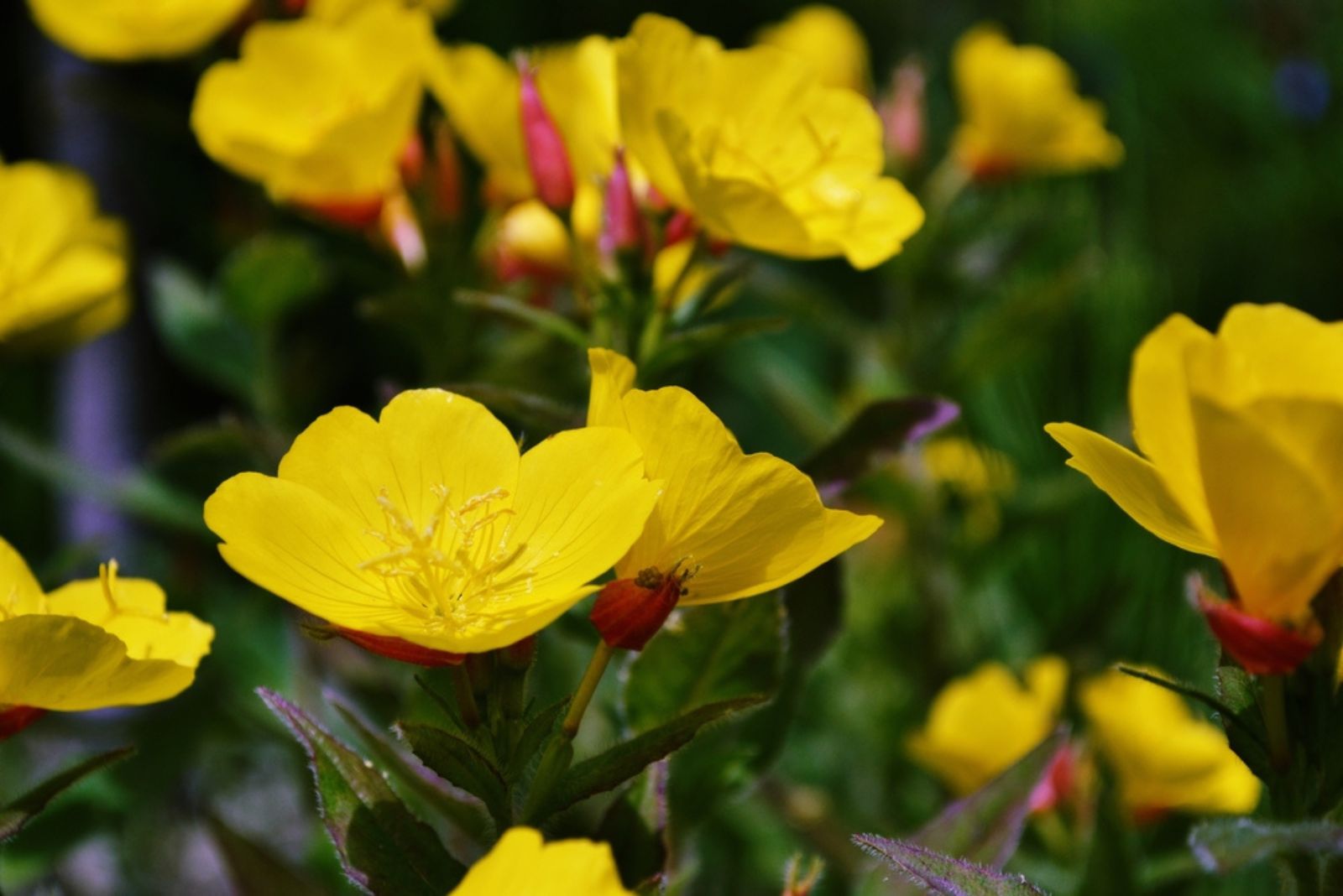
Here comes nature’s little springtime gift, bursting into bloom with cheerful yellows, purples, and pinks when most other plants are still waking up. Primroses bring life to shady corners with minimal effort.
Expose them to direct sunlight, and their vibrant flowers quickly fade. Their leaves lose their lush green, and the plant looks exhausted. Keep primroses out of the heat if you want them to shine as the early stars of your garden.
12. Dead Nettle Won’t Creep In Sunny Corners
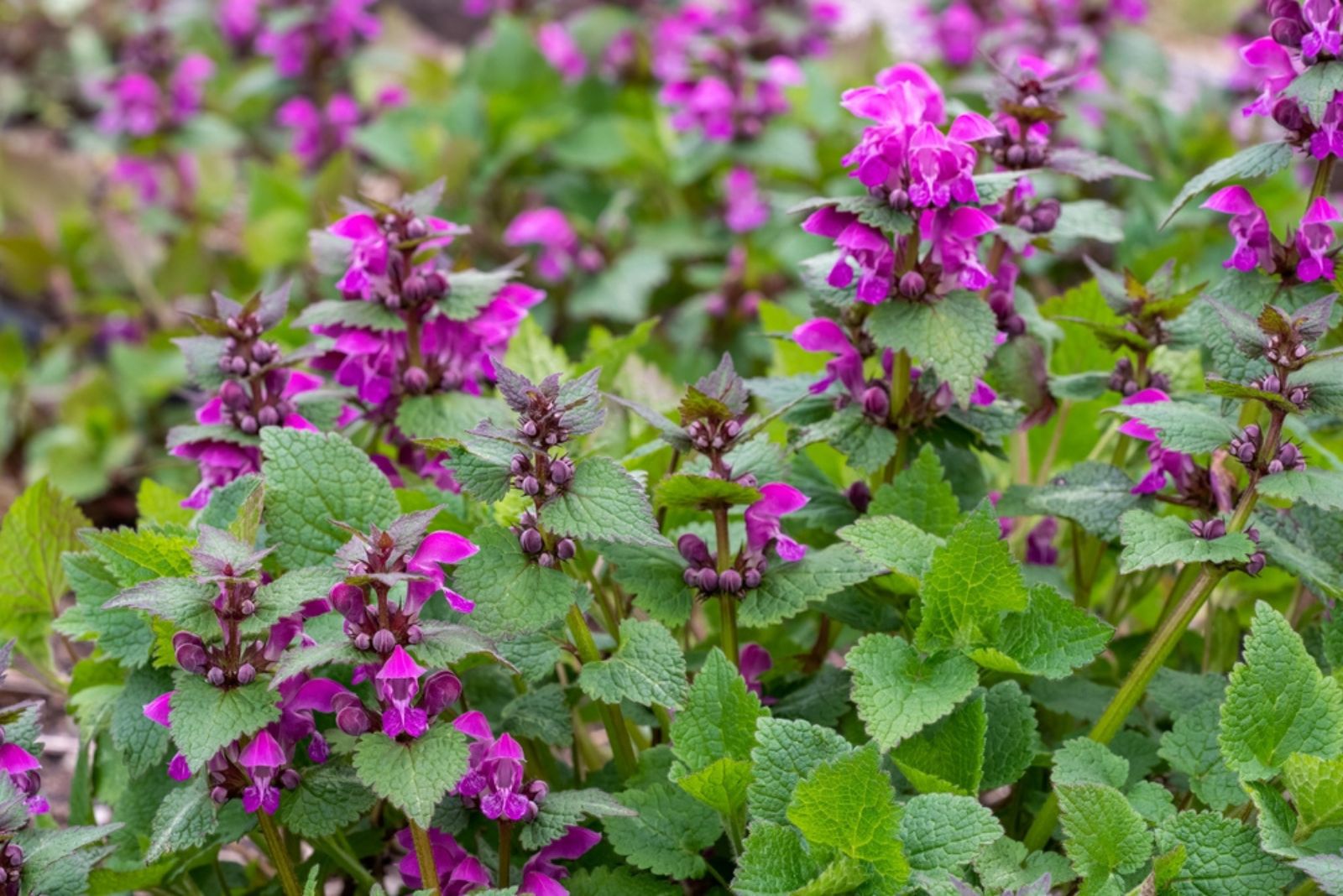
We all love the Dead Nettle! It’s a versatile ground cover, with silvery leaves and small flowers that add a pop of purple or pink to low-light garden beds. It’s a low-maintenance plant that spreads effortlessly in cool conditions.
If you expose it to full sun, you can forget about its beauty. The delicate leaves brown and curl, while its once-bold spread halts entirely. Remember, Dead Nettle needs a spot far from harsh exposure!
13. Foxglove And Direct Sun Aren’t Friends
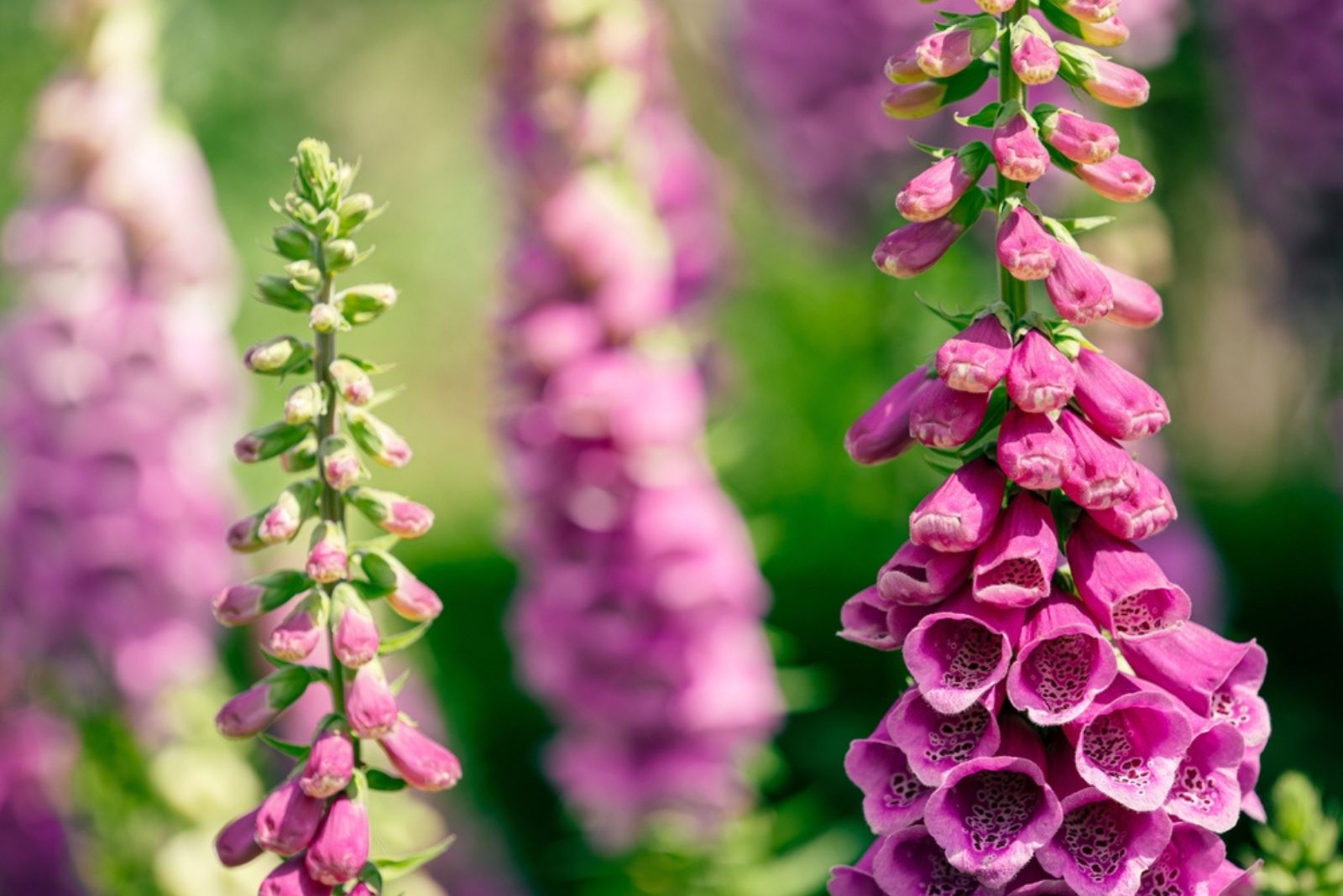
Foxgloves are towering garden classics, their bell-shaped flowers lining tall spires that attract bees and add vertical drama to garden beds.
But do you know what will happen if you plant your foxgloves in full sun? To put it mildly, their charm will quickly wilt away.
The stems droop, the flowers lose their luster, and the plant becomes a shadow of its former glory. Cool, filtered conditions are a must for these majestic bloomers.
14. Brunnera Is The Forget-Me-Not Lookalike That Fears The Heat
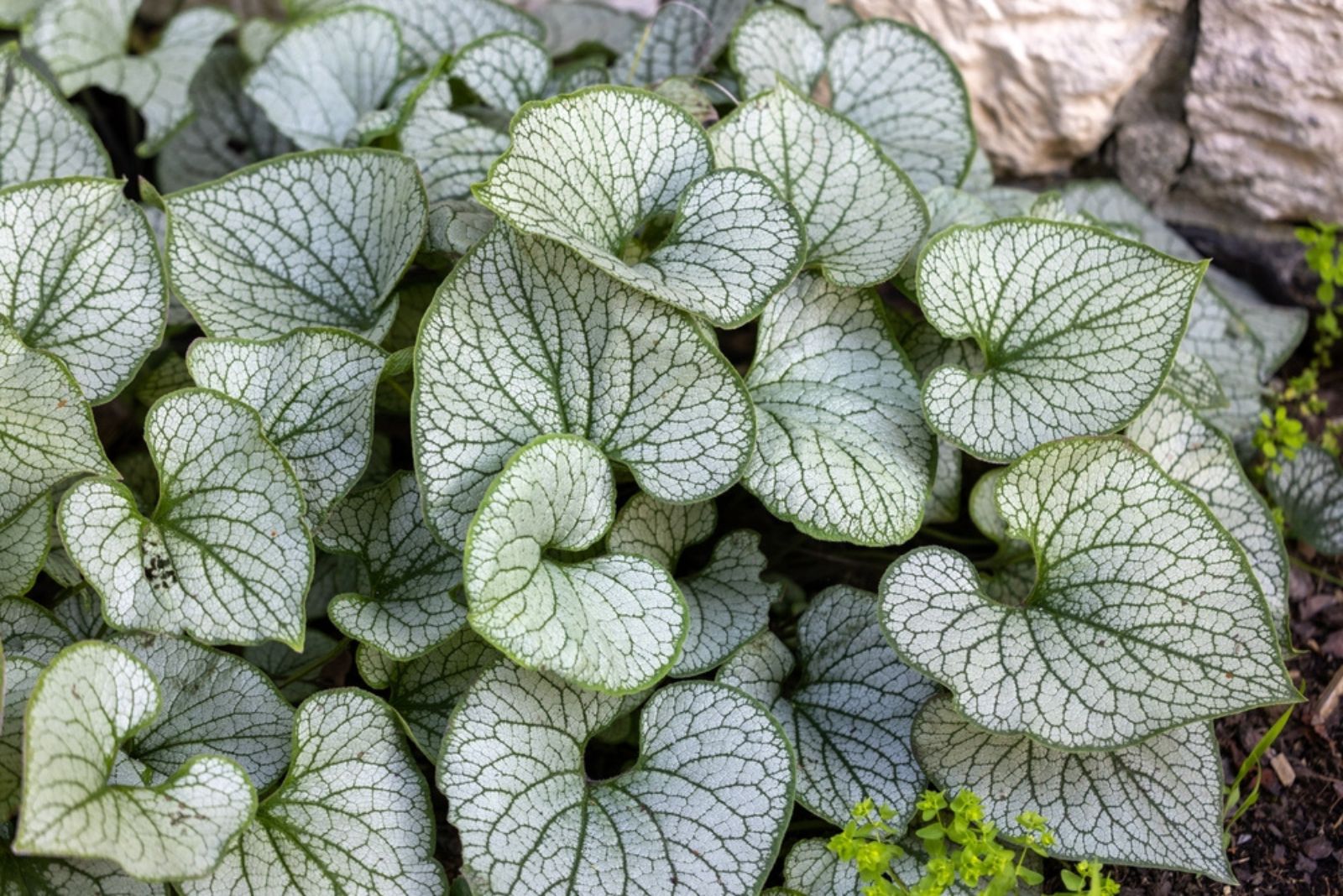
Mistaking plants for one another can be a risky game! Brunnera and forget-me-nots may look nearly identical, but they don’t thrive in the same conditions.
Forget-me-nots love full sun, while for brunneras, that’s their kryptonite. Intense sunlight scorches their leaves, turning them brown and papery.
Brunneras flourish in calm, shaded spots, where their foliage and blooms stay vibrant and full of life.
15. Solomon’s Seal Doesn’t Arch Gracefully In Harsh Rays
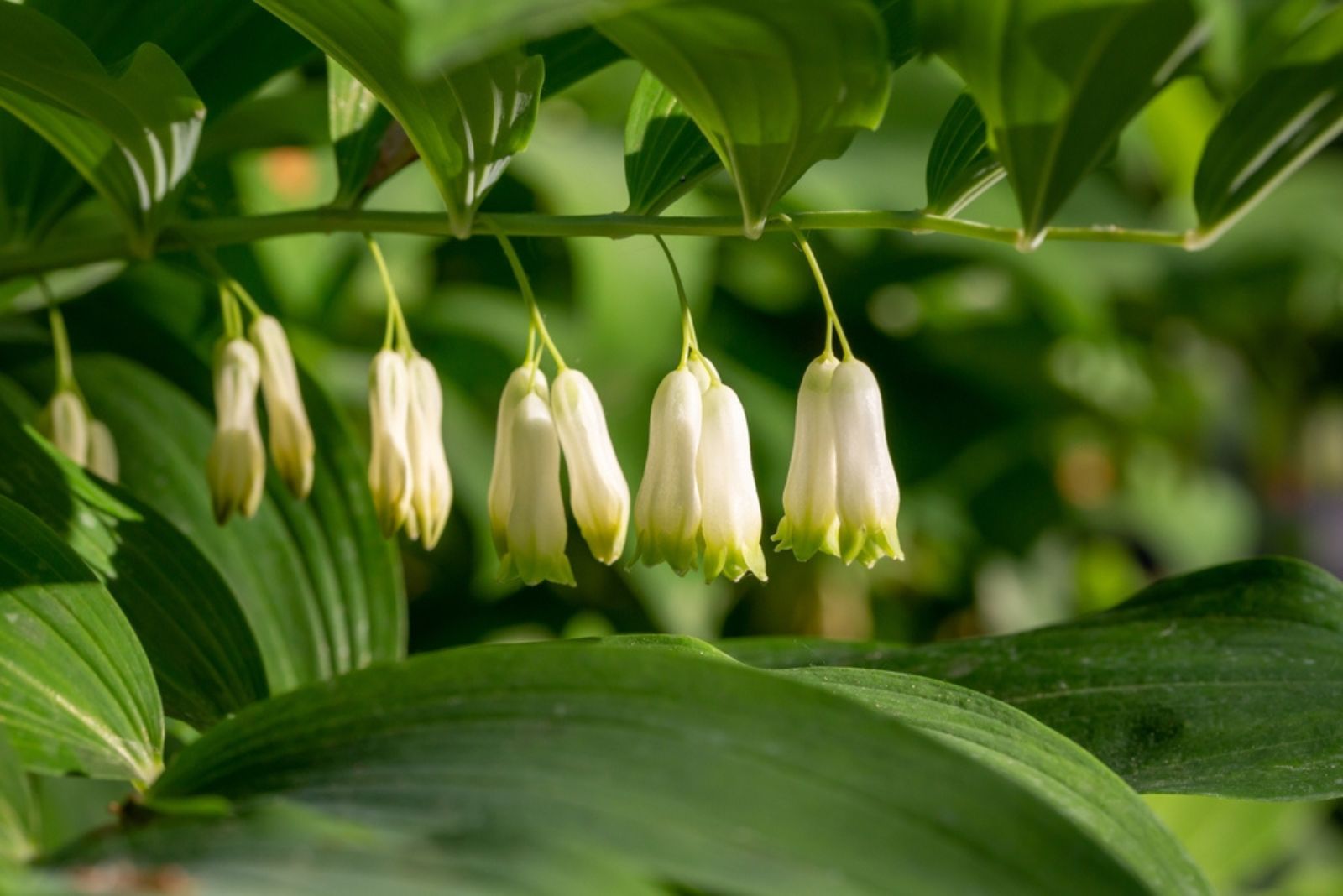
Solomon’s Seal is a woodland beauty, its long, arching stems adorned with dangling white flowers that look like delicate pearls.
Under harsh conditions, this plant simply loses its elegance. The stems dry out, the flowers drop prematurely, and its graceful charm is gone. For Solomon’s Seal to keep its poise, it needs a cool, sheltered home.
16. Hydrangeas Won’t Show Off Their Colors In Full Sun
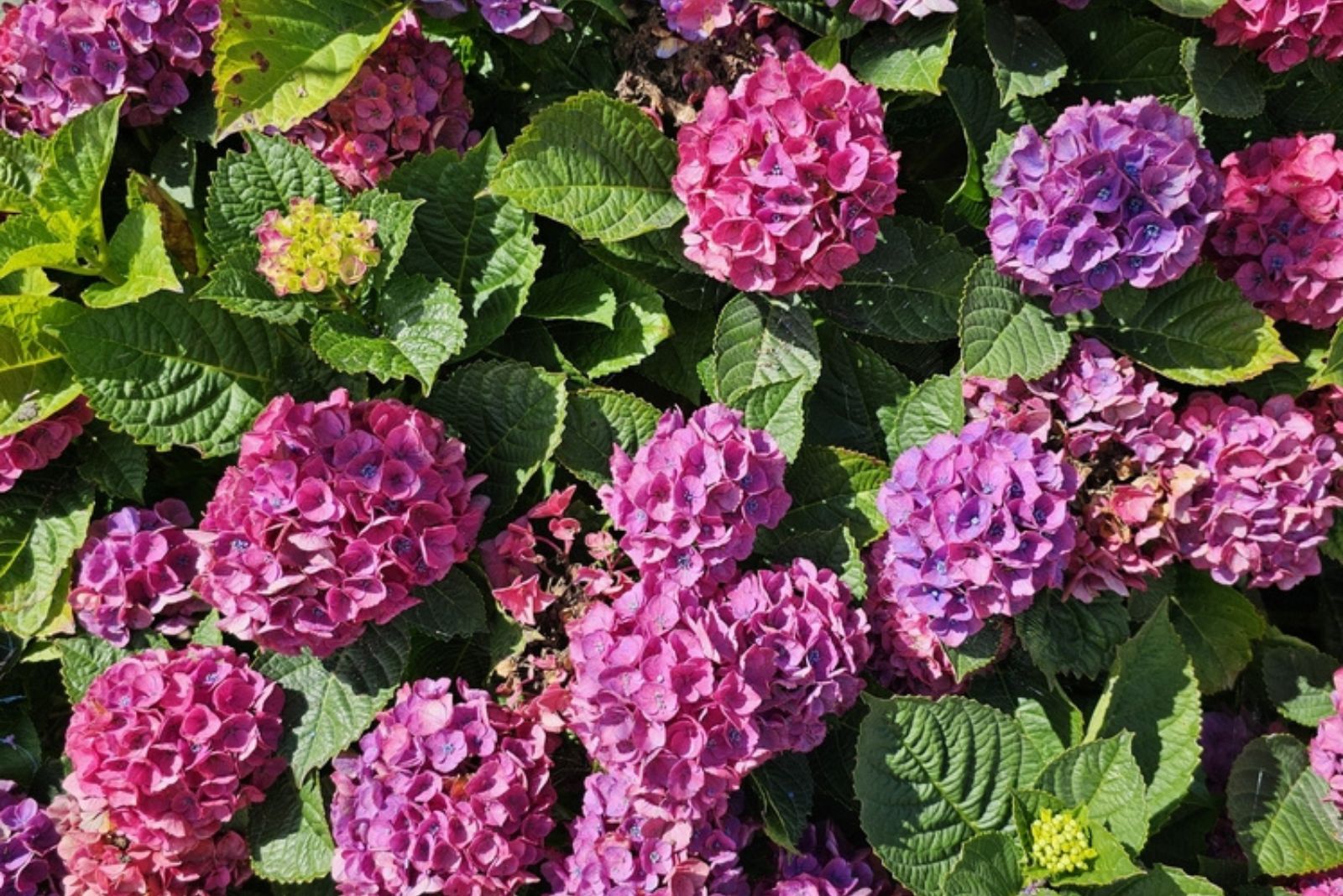
Is there anything more beautiful than a hydrangea in full bloom? They steal the show with their oversized, colorful blooms, ranging from pastel pinks to vibrant blues.
But place them in full sun, and their flowers dull and dry out, while their leaves turn crispy around the edges. A well-hydrated, shaded spot is the secret to keeping hydrangeas in top form.
17. Jacob’s Ladder Will Stop Climbing
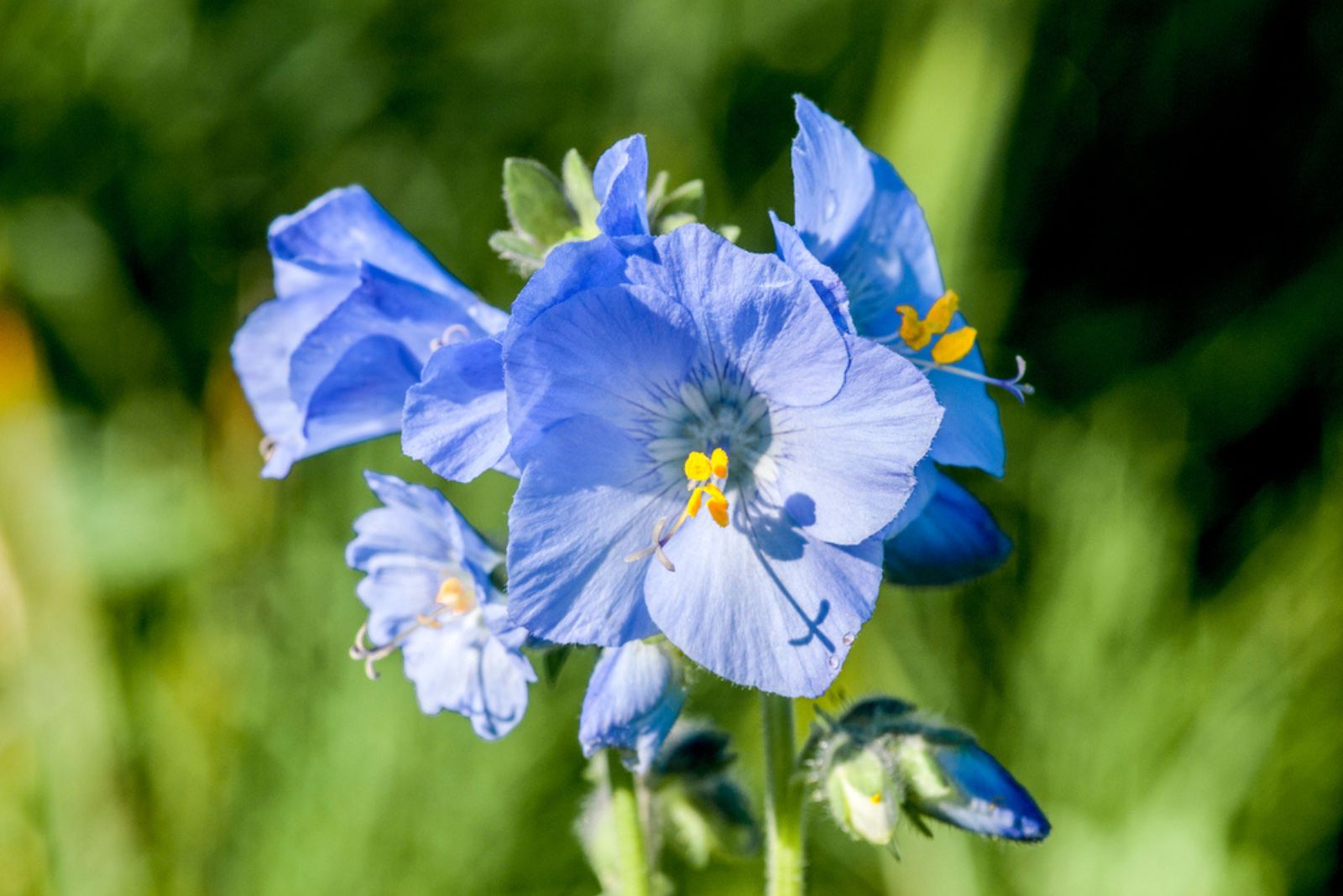
Jacob’s ladder earns its name from its pinnate leaves, which resemble a ladder reaching for the sky, and its clusters of soft, bell-shaped flowers.
If you want your Jacob’s ladder to reach its full potential, don’t plant it in direct sun. Instead of climbing gracefully, it will look stunted and stressed.
18. Sweet Woodruff Loses Its Fragrance And Eventually Dies Off
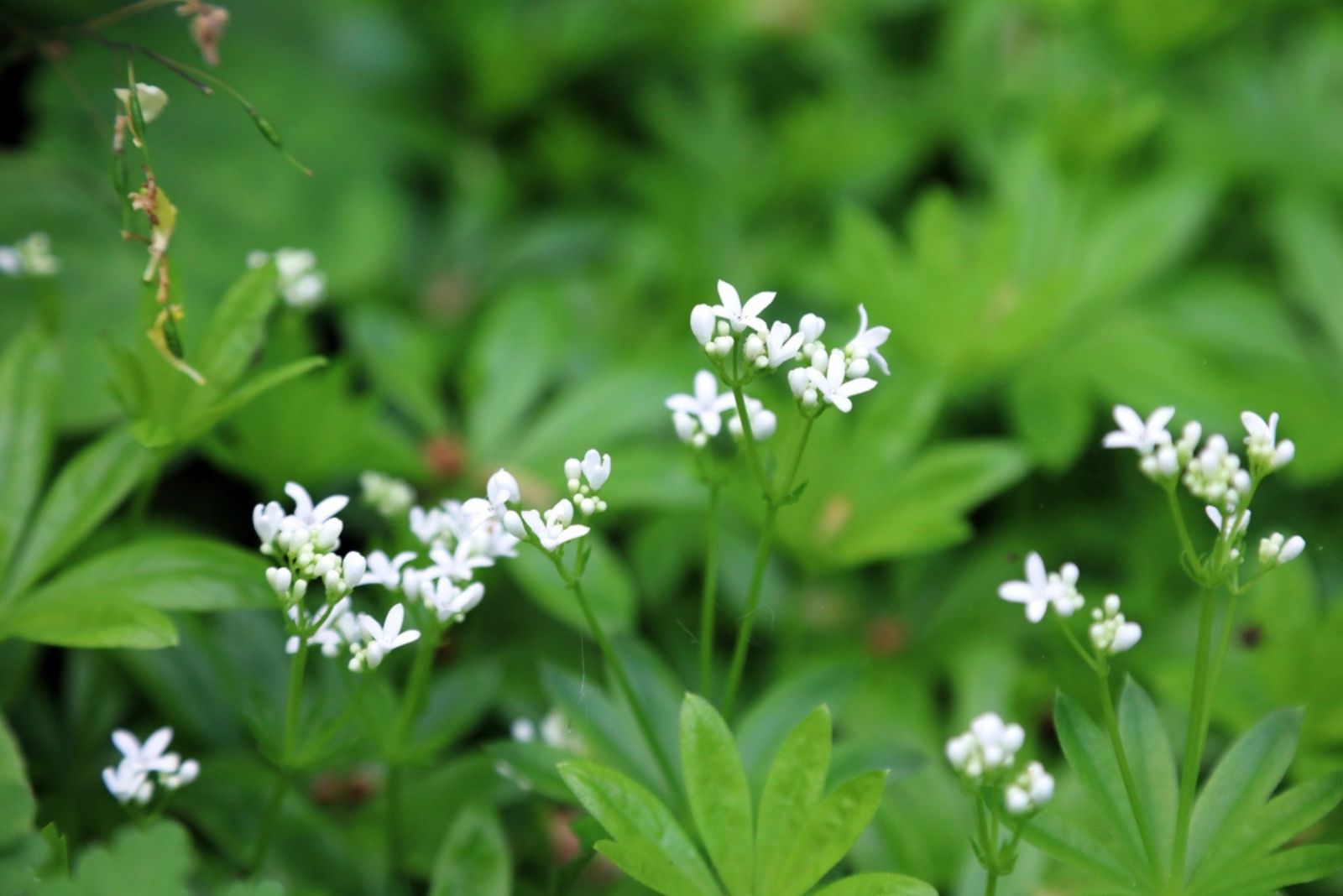
Fragrant gardens are a dream for almost every plant grower! If you’re one of them, sweet woodruff is just what you need.
But don’t give it too much exposure, or it will quickly wilt. Its fragrance fades, its leaves yellow, and the plant eventually declines entirely. The only way for the sweet woodruff to maintain its charm is to give it the cool embrace of shade.
That’s the list! These 18 plants prove that not all greenery loves the limelight – shade is their happy place.

